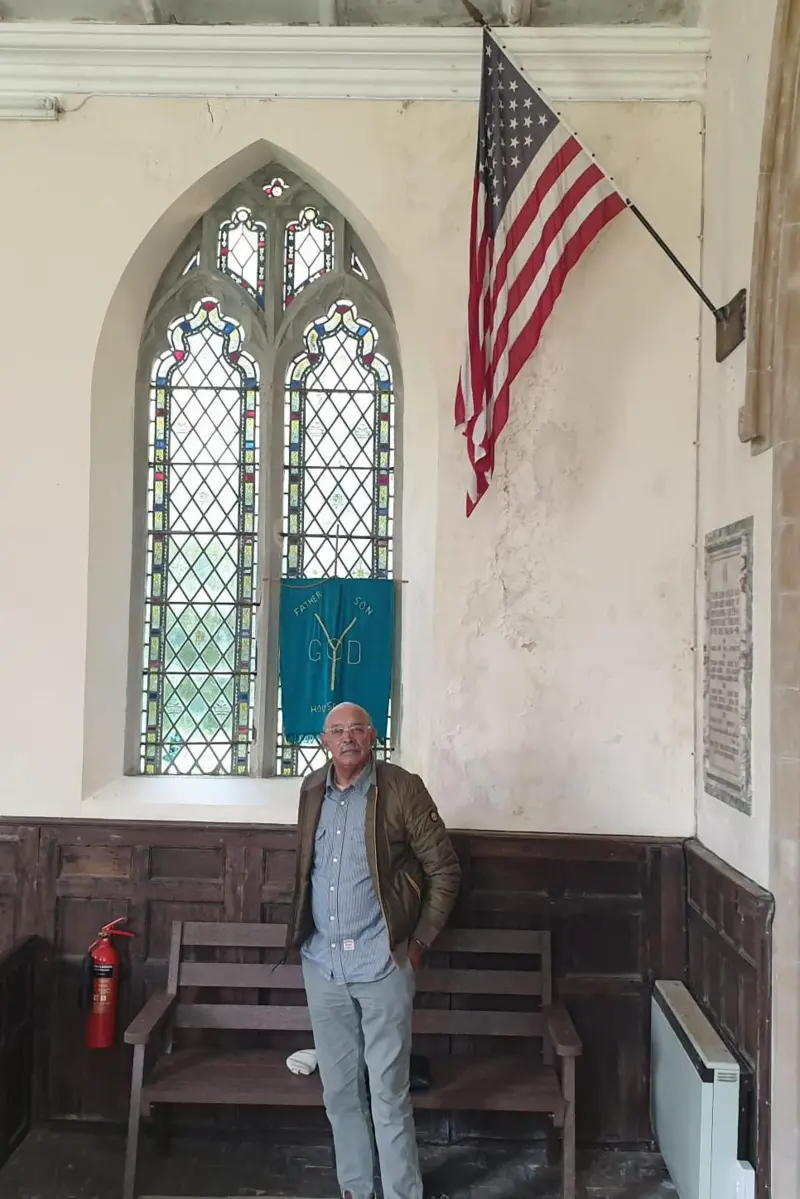In Tribute to John Stockley: Uncovering the Past, Inspiring the Future
On 3rd July 2025, the community of Weymouth will gather at the Pavilion to honour the life of John Stockley, a much-loved resident of Osmington who helped shine a light on a hidden chapter in the town’s wartime story.
Best known for his appearance on Channel 4’s Secret War Babies in 2022, John became a voice for a generation of children born from wartime romances between local women and foreign servicemen stationed across Dorset.
John was born on the final day of World War II in 1945. Only later in life did DNA testing reveal the identity of his biological father: Madison Glover, an African American GI with the U.S. Army's 1313 Engineering Company, stationed in Weymouth ahead of the D-Day landings.
His mother had run a guest house used by Allied troops—a space that became a silent witness to lives changed by war, longing, and fleeting connections.
Growing up in a predominantly white, post-war Weymouth, John endured the cruel sting of racial prejudice. While many wartime births were carefully disguised or forgotten altogether, John’s story could not be so easily veiled. In the documentary, he spoke candidly about the challenges he and his mother faced, including abuse from the man who returned from war to find another man’s child in his home.
But John's journey was not just one of hardship—it was one of truth-seeking and healing. His DNA discoveries not only led him across the Atlantic to the grave of the father he never met, but also into the warm embrace of his American extended family..
“My father was an African American GI who came here to fight against tyranny,” he said—words that resonate beyond his personal story and into the broader narrative of those unsung soldiers whose lives and legacies have often been forgotten.
Weymouth during the war was filled with American, Canadian, and ANZAC troops stationed in nearby Chickerell, Wyke Regis, Osmington, and Broadmayne.
Locals remember tales of young women swept up in moonlit bike rides, NAAFI dances, and the rare gifts of chocolate or silk stockings. For many, war was a time of uncertainty, connection, and heartbreak. Babies born from these encounters were often quietly adopted, fostered, or folded into complex family stories never to be retold—until now.
The stories John uncovered paint a portrait of wartime Weymouth that is both tender and poignant.
One woman recalled faking a six-month phantom pregnancy only to “look after” a baby briefly before her husband returned from overseas. Another described giving birth to a stillborn child and leaving the hospital with a different baby boy, gifted in grief. These weren’t isolated incidents—they were woven into the social fabric of a community trying to move on from war, even as the scars lingered.
John’s courage in confronting his past has brought overdue recognition to the hidden families of wartime Britain. He reminded us that DNA doesn’t lie—and neither does history, when we are brave enough to face it. In today’s more open world, the stigma of illegitimacy has faded, allowing space for stories like John’s to emerge, full of dignity and unflinching truth.
He once said that his father and fellow soldiers had been “airbrushed out of history.” Thanks to John’s persistence, that image is coming back into focus. His legacy lives on not only in the annals of local history but in the hearts of those he inspired.
As Weymouth prepares to celebrate his life this July, perhaps it’s time to ask ourselves—what other truths remain untold?
If your family roots trace back to Dorset in 1944 - 1945, a simple DNA test might do more than reveal your ancestry. It might uncover a story that’s been waiting to be heard.
Just like John’s.
Black History Month: John Stockley – Dorset History Centre blog
Britain's Secret War Babies: 'After 77 Years, I Finally Know Who My Father Is' | This Morning
Britain's Secret War Babies: 'After 77 Years, I Finally Know Who My Father Is' | This Morning



Comments
Post a Comment